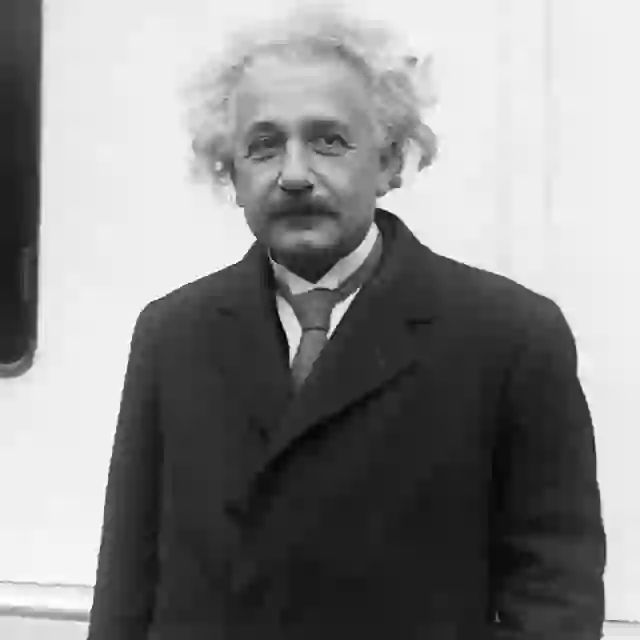Albert Einstein is a name synonymous with brilliance, pacifism, and humanitarian ideals. But hidden deep in the archives of the FBI lies a story far less known to the public—a tale of suspicion, paranoia, and relentless surveillance. For over two decades, the Federal Bureau of Investigation tracked, recorded, and documented the activities of the world’s most famous physicist, accumulating a staggering 1,427 pages in secret files. The reasons, while rooted in the political turbulence of the 20th century, also reflect a broader anxiety that still echoes today: the fear of unconventional thinkers.
A Genius Under Watch
Einstein emigrated from Nazi Germany to the United States in 1933, taking up a position at Princeton’s Institute for Advanced Study. While he was welcomed as a scientific hero, he arrived carrying not just theoretical formulas, but outspoken political beliefs. He was a passionate advocate for civil rights, a vocal critic of fascism, a strong supporter of socialist ideals, and an early opponent of nuclear weapons.
These convictions, especially during the rise of anti-communist sentiment in the U.S., made him a person of interest to the FBI and its director, J. Edgar Hoover. What began as a cursory examination soon morphed into a full-fledged surveillance operation.
Why the FBI Targeted Einstein
Einstein’s political activism and connections triggered red flags within the government. He was affiliated with dozens of organizations deemed “subversive” or “communist-influenced” by the Attorney General’s list. Some of these included civil liberties groups, refugee aid societies, peace movements, and anti-lynching committees. Though many of these causes seem noble in retrospect, in the shadow of McCarthyism and Cold War paranoia, they were seen as potential fronts for Soviet influence.
The FBI file includes newspaper clippings, informant reports, transcripts of intercepted communications, and background checks. At various points, agents investigated whether Einstein’s lectures, public writings, and even his friendships were coded messages or tools of political manipulation.
In 1950, the FBI even contemplated denying Einstein’s U.S. citizenship or deporting him. Hoover and others suspected he might be a covert Soviet agent or ideologue bent on influencing American public opinion against capitalism and military buildup.
The Irony of Suspicion
Perhaps the greatest irony lies in what the FBI didn’t find. Despite over 20 years of close monitoring, agents found no credible evidence of espionage or illegal activity. Instead, they uncovered a portrait of a deeply ethical, socially conscious scientist who championed democracy and human rights—even if he criticized the U.S. government when it failed to uphold those ideals.
Einstein opposed racism and segregation, calling it America’s “worst disease.” He was one of the few prominent white intellectuals to publicly support W.E.B. Du Bois and Paul Robeson when they were targeted during the Red Scare. He advocated for Jewish-Arab coexistence in Palestine, was against the nuclear arms race, and favored international diplomacy over military aggression.
These views, progressive and inclusive, were often framed by the FBI as “radical” or “un-American.” The depth of his file shows how dissent—no matter how well-intentioned—was closely policed in mid-century America.
Einstein’s Own Awareness
Einstein wasn’t naïve about being watched. In fact, he suspected as much and even mocked the idea in public. In a 1949 letter, he wrote, “I do not consider myself at all as a so-called communist… but I must admit that I belong to that group which regards the intensification of armaments by all nations as the greatest danger to mankind.”
He warned of what he called an “American fascism”—not in the form of jackboots and salutes, but through the quiet silencing of dissent and the unthinking worship of conformity. His fears were not entirely misplaced. By the 1950s, figures across academia, Hollywood, and journalism had been blacklisted or arrested for far less than Einstein’s open criticism of government policy.
Declassified, but Not Forgotten
The full extent of the FBI’s surveillance only came to light after decades of FOIA (Freedom of Information Act) requests and academic persistence. When the file was finally released, scholars were stunned by its volume and its pettiness. It included absurd leads—like suspicions Einstein was trying to smuggle secret formulas to Moscow in his lectures—and reflected the Bureau’s broader fixation with high-profile figures who challenged the status quo.
Even in death, the file did not rest. Portions of it were updated and referenced into the 1960s, indicating that Einstein’s ideological influence continued to concern those in power.
What It Says About Us Now
The story of Einstein’s FBI file is not just a historical curiosity. It is a cautionary tale about how fear can turn heroes into suspects, and how governments—however democratic—can stray from their founding ideals under the pressure of internal insecurity.
In today’s world, where surveillance technologies are far more sophisticated and global tensions persist, Einstein’s story reminds us that intellectual freedom, political dissent, and moral courage are all easily misunderstood or deliberately targeted. It raises questions we’re still asking: Who decides what’s “subversive”? When does patriotism become paranoia? And how do we protect voices that challenge power rather than serve it?
Final Thoughts
Albert Einstein changed the world with his theories, but he also tried to change it with his conscience. That 1,427-page FBI file, once hidden in secrecy, is not a stain on his legacy—it’s a testament to it. It proves that even the most brilliant minds are vulnerable when power fears principle. But more importantly, it shows that the price of progress is often paid by those bold enough to question the status quo.











